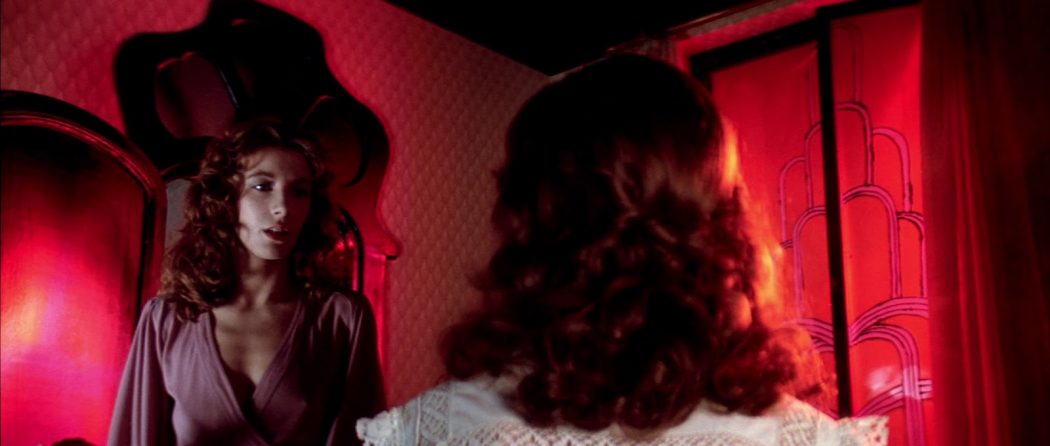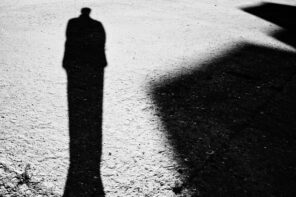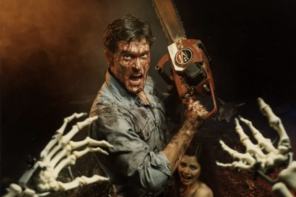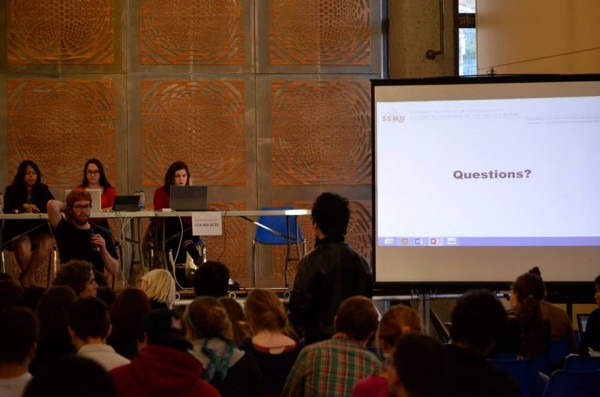For horror lovers who adore Halloween for the movies, choosing a good film can be difficult. Even more so if you’re looking for something that sidesteps and subverts the misogynist cliches of the genre. Horror has too often had its women live and die savagely; they’re sexualized and then killed for it, or their sexuality makes them villainous, or they’re portrayed as too dumb to save themselves. Some horror tries to convince us that women have it coming, but the genre is most worth celebrating when it rejects these standards, using biting satire or terrifying cautionary tale.
An unlikely staple of feminist cinema, American Psycho (d. Mary Harron) grounded itself with subversion and sly irony, reinvigorating the comedy-horror and introducing us to the cinematic iteration of Patrick Bateman, an Important Businessman™ with a taste for brutal murder and chilling narcissism. Directed and written by women, the film concerns itself foremost with Patrick’s vanity in convergence with his masculinity. He’s pathetic, and his violence is inherently connected to feelings of male insecurity.
Horror has too often had its women live and die savagely; they’re sexualized and then killed for it, or their sexuality makes them villainous, or they’re portrayed as too dumb to save themselves.
It’s a critique of misogyny, of course, but also of the culture that breeds it; an intersection of capitalism, social artifice, and enraged homophobia. These things are all connected, of course, because people who are fragile about gender, sexuality, money, and self-worth will lash out at anyone who challenges their assertions about these things. Patrick Bateman is delicate in such a way, and so he is violent, making American Psycho a scathing, evergreen satirization of toxic masculinity.
What is it about gender and sexuality that makes them both ripe for the horror treatment? The answer lies with The Love Witch (d. Anna Biller), a glorious technicolour sixties throwback about a witch who goes mad for expecting too much of men. Elaine uses magic for sex and power, hoping to reel the right one in until they love her. But she’s aghast when the men she lures in fall a little too hard, driven insane by overwhelming emotion that they cannot handle.
The film has much to say about sexuality in the context of horror — it’s extremely clever, and often laugh out loud funny, turning men into love sick messes who have the capacity for objectification and sex but not for romance or intimacy; too much of the latter and they immediately fall ill. Of one of her flings, Elaine says, “He became just like a woman, crying at every little thing,” and the irony is as potent as a witchy love-brew.
If you love witches then perhaps you’ll die for Suspiria (d. Dario Argento, and now Luca Guadagnino), but supernatural cinema extends further than witchcraft. The 1976 classic Carrie (d. Brian de Palma) found terror in telepathy and adolescence, but it’s my favourite film on this list because of the way it harnesses the titular character’s rage, lashing it at her fundamentalist mother and her cruel classmates.
Horror has historically punished people for sex — though this has been turned on its head by films like David Robert Mitchell’s It Follows— but Carrie has some pretty sophisticated sexual politics. Carrie’s mother Margaret is the monster — she snarls at her daughter’s maturing body, equating menstruation with sin and smacking her with her bible: “And the first sin was blood!” So long as Margaret is the one terrorizing her daughter for her newfound womanhood, the film makes the statement that policing women’s bodies is the relic of a scary, repressive past. If you prefer horror with well-intentioned mothers, try The Babadook (d. Jennifer Kent), about a woman whose son begins acting strangely after they start reading a haunted children’s book.
Another horror classic with feminist leanings is Ridley Scott’s Alien, which has one of the most iconic leading women in film history: Ellen Ripley, third in command of the Nostromo space mission, who must lead herself and her crew to safety after a blood thirsty alien makes its way onboard. Alien is a portrait of female courage and fear; Ripley is imprisoned by outer space, increasingly distrustful of her peers, but she powers through to give us both action and to outwit a creature that dominated the rest of the (mostly male) crew.
Recent films like Raw (d. Julia Ducourneau) and Jennifer’s Body (d. Karyn Kusama) have dug a niche for cannibalism in feminist horror. But before those movies and their cannibal anti-heroines, the roles were reversed in Silence of the Lambs (d. Jonathan Demme), a masterpiece of the horror-thriller genre and American cinema. The film’s flesh eating villain is Hannibal Lecter, a brilliant murderer whose cerebral games are a match only for Clarice Starling, the young FBI trainee assigned to his case.
The film positions these two characters with feminist purpose; much has been written about the way that Demme wields the camera as intentional commentary on the male gaze. It’s striking to see Clarice unfazed by Hannibal’s provocations, unmoved by whatever he may think of her or think to be true of her. She is a true professional, concerned with doing her job and saving a young woman, even when it means putting herself in life-threatening danger.
As a type of cinema that has a lot to do with the human body — gore, sex, goosebumps — horror has plenty of room to make progressive statements and to distance itself from a long line of misogynist fare. Over the course of its history, the genre has disrupted many of its own cliches with thoughtful critiques and smart commentary. With such a killer selection, there’s no way to go wrong… so this Halloween, let the right one in and enjoy some feminist horror.









Love this article! Such good movies. Happy Halloween!